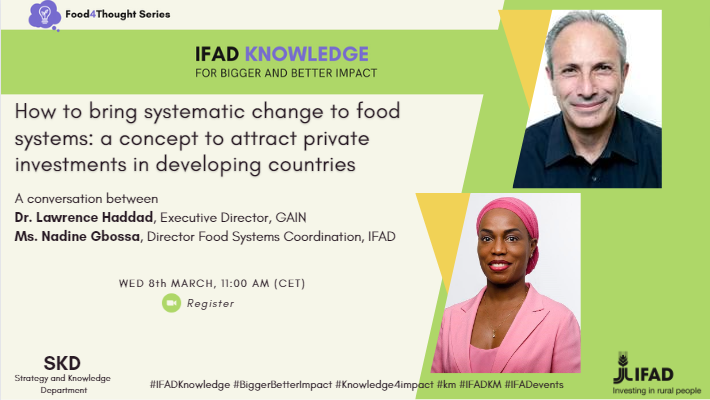SEED FUNDING JOINT PROGRAMMES
Cambodia
Transforming Cambodia’s food systems to become more sustainable, inclusive, and resilient


PROJECT TITLE | Transforming Cambodia’s food systems to become more sustainable, inclusive, and resilient |
| Context | Cambodia’s National Pathway is the outcome of an extensive consultation process, involving more than 2,000 people throughout thirty dialogues, which identifies four priority areas, namely healthy diets for all, empowerment of youth, women and vulnerable groups, resilient livelihoods and food systems, inclusive governance. Acknowledging the risks posed by climate change to hard won development gains and as a co-founder of the Alliance of Champions for Food Systems Transformation, Cambodia is prioritizing the integration of climate change and food systems transformation, building coherence across the agendas. The Council for Agricultural and Rural Development, the government agency coordinating food security and nutrition initiatives in Cambodia, is leading collaborative efforts to translate national aspirations into concrete action. |
| PUNOs | FAO, WFP, UNICEF |
| Contribution to SDGs | SDG 2 Zero Hunger |
| Contribution to other SDG transitions | Climate, biodiversity, pollution |
| Duration | August 2024 – July 2025 |
| Expected financial leverage | $3 million |
| Alignment with SG Call to Action | Policy integration; Food systems governance; Inclusive and participatory design; Private sector engagement |
| Outcomes | The Joint Programme fosters an enabling environment for food systems transformation by enhancing national capacities and policy frameworks, identifying opportunities to unlock financial streams, and strengthening advocacy efforts for food systems transformation. The JP provides crucial support to the alignment of the climate and food agendas, accelerating progress towards resilient, sustainable and inclusive food systems. |
| Partners | Council for Agricultural and Rural Development (CARD) will be the main government counterpart and will coordinate the government activities in conjunction with other key Ministries, including:
|
| Outputs |
|
IFAD Food 4 Thought Event: How to bring systematic change to food systems

©IFAD
This Food 4 Thought event was hosted by IFAD and featured a conversation with Dr. Lawrence Haddad, GAIN’s Executive Director, and Ms Nadine Gbossa, Director for Food Systems Coordination in IFAD, on how to bring systematic change to food systems. The discussion was introduced by Dr. Jyotsna Puri, Associate Vice-President of Strategy and Knowledge Department at IFAD and moderated by Lenyara Fundukova, Senior Knowledge Management Specialist at IFAD. During the event, actors and related mechanisms that can attract private sector investment in developing countries to generate a positive food systems transformation, were explored and discussed.
View the full event recording.
About the Speakers
Dr Lawrence Haddad is GAIN’s Executive Director since 2016. From September 2020 and up to the United Nations Food Systems Summit that took place on 23 September 2021, Lawrence chaired Action Track 1: Ensuring Access to Safe and Nutritious Food for All. Lawrence is also the co-convener of the Standing Together for Nutrition. Prior to GAIN, Lawrence was lead author of the Global Nutrition Report, Director of the Institute of Development Studies (IDS), and Director of the Food Consumption and Nutrition Division at IFPRI. He is the winner of the 2018 World Food Prize together with David Nabarro. Click here for more.
Ms Nadine Gbossa is a senior development professional with over 20 years’ experience dedicated to sustainable development. In October 2021, Gbossa was appointed as IFAD’s Director for the Food Systems Summit follow up. She is also the Chief of Means of Implementation with the UN Food Systems Coordination Hub. As a Country Director and Regional Head for IFAD, Gbossa worked in several African countries with vulnerable communities, governments, development partners and the private sector for inclusive growth. With IFAD in Nigeria, Gbossa managed the largest country programme in the region and she was later appointed as Director for the West and Central Africa region.
